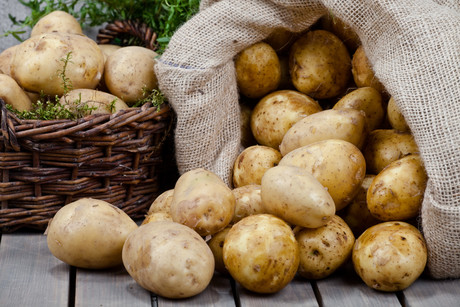Simplot acquires licence for gene editing technology

Many consumers support the idea of minimising food waste, but are wary of genetically modified (GM) food which can help achieve this goal. J.R. Simplot Company hopes to overcome this issue and use gene editing technology to develop desirable traits in certain fruits and vegetables that can extend shelf life and reduce waste.
Simplot announced it is the first agricultural company to make a joint intellectual property licensing agreement for foundational CRISPR-Cas9 and related gene editing tools with Corteva Agriscience, Agriculture Division of DowDuPont, and the Broad Institute of MIT and Harvard.
Simplot provides fresh, frozen and chilled products such as potatoes, avocados and strawberries, and it plans to use the technology to help farmers produce more crops and offer US consumers more aesthetically pleasing, fresh products.
The US Department of Agriculture (USDA) found US consumers throw out about 150,000 tonnes of food each day, and according to the Journal of Consumer Affairs, 35% of fresh potatoes worth $1.7 billion are wasted due to poor storage or shelf life every year. Gene editing technology like CRISPR-Cas9 can help limit waste in potatoes, avocados, strawberries and other produce.
“We’re excited to add CRISPR-Cas9 technology to our platform of tools aimed at providing more sustainable produce for the industry,” said Susan Collinge PhD, Vice President of Simplot Plant Sciences. “These pioneering tools may enable growers to achieve higher yields on less land resulting in fewer pesticides, water and labour needs while extending the quality of a consumer’s favorite foods.”
Issi Rozen, Chief Business Officer of the Broad Institute, said “Our goal is to maximise the scientific impact of CRISPR-Cas9 for improving agriculture, and our joint licensing agreement offers the opportunity to provide much broader access to help researchers reduce food waste, limit pesticides and improve drought resistance, while promoting safe and ethical uses of groundbreaking technologies.”
Simplot has already released two generations of potato varieties, Innate, using different genetic techniques that were less prone to bruising and black spots.
The USDA recently said that under its biotechnology regulations, it does not regulate or have any plans to regulate plants that could otherwise have been developed through traditional breeding techniques as long as they are not plant pests or developed using plant pests.
Despite the advantages of GM food and the fact there is no evidence to suggest genetically modified organisms (GMOs) are unsafe, many consumers remain sceptical about these products. Simplot suggested the industry could have over five years to change opinions, as that is how long it could take for new potato varieties to be developed and sold commercially.
$15m AI space project to help boost Australian agriculture
The Australasian Space Innovation Institute is developing an AI-enabled geospatial national...
Barry Callebaut opens chocolate innovation centre in Singapore
The Callebaut Global Innovation Center is helping to advance the future of chocolate and cocoa...
Natto your average Japanese superfood
Scientists are analysing the supersulfide content of Natto, a Japanese food made from soybeans...











